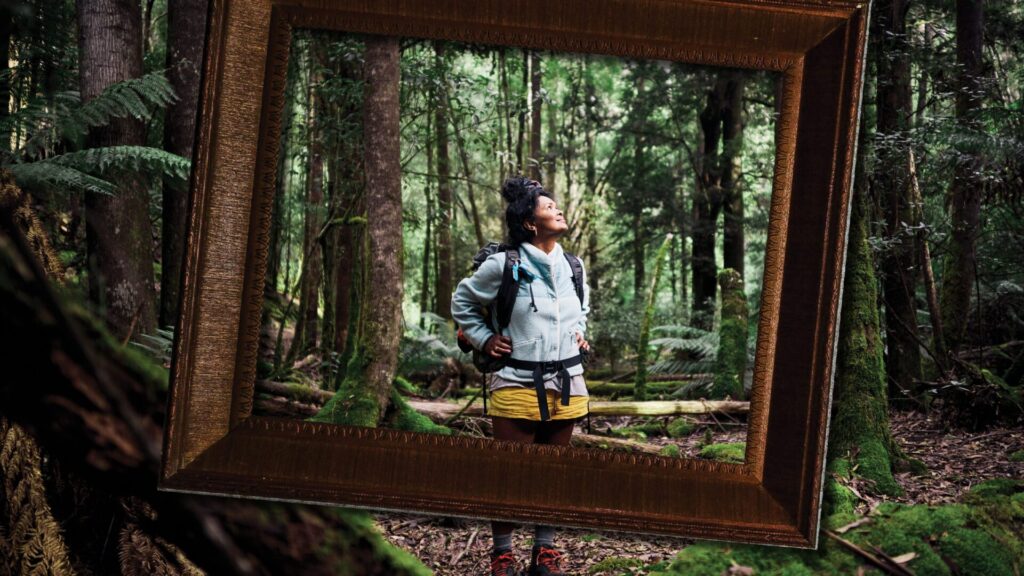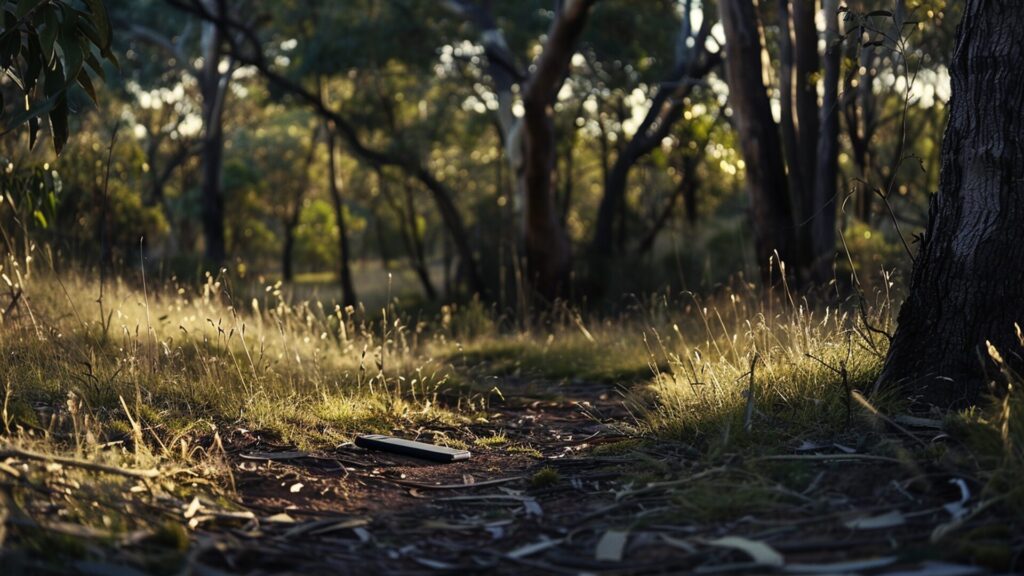Bert adjusted his glasses and studied the chaplain’s weathered hands, noticing how they moved with practised gentleness as he poured a hot drink. After 43 years in the classroom, Bert had learned to read people, but Chaplain Michael remained a mystery worth exploring—a man who seemed to embody what Dutch priest Henri Nouwen called “the wounded healer”, carrying his own scars with quiet grace.
“The carburettor’s giving us trouble again,” Bert said quietly, accepting the warm mug. It wasn’t really about the Honda Goldwing and they both knew it.
Michael settled into the opposite chair, his presence unhurried. “Tell me more about that.” His response embodied what pastoral care scholars call “holy listening”—the art of being fully present without the need to immediately fix or solve. For months now, these conversations had become Bert’s anchor. The transition from his own home to AdventCare had felt like dismantling himself piece by piece, much like the motorcycle in the restoration shed. Independence—that thing he’d worn like armour through decades of shaping young minds—had been stripped away as methodically as chrome and engine parts. Some days, he felt like Job sitting in the ashes, questioning everything he’d once held certain.
“We’ve been at it for weeks,” Bert continued, his voice gaining strength. “Jim thinks we need a complete rebuild, but Tom reckons we can salvage the original components.” He paused, fingering the rim of his teacup. “I find myself wondering if I’m more like that carburettor than I care to admit. Worn down, not functioning the way I used to.”
Michael’s silence invited deeper reflection. This was his gift—not rushing to fix or explain, but creating what pastoral care pioneer Anton Boisen called “sacred space” for the soul to unfold its truth. In seminary, he’d learned that sometimes the most profound healing happened not through words, but through presence itself.
“You know, I used to think I had all the answers,” Bert said, surprising himself with the admission. “Forty-three years of teaching mathematics, believing that every problem had a solution if you just applied the right formula.” He looked up, his eyes reflecting decades of certainty now shaken. “But there’s no equation for becoming dependent, is there? No formula for watching your body betray everything you’ve built.”
The chaplain leaned forward slightly, his movement gentle as a shepherd approaching a wounded sheep. “What have you learned in the shed that you couldn’t learn in the classroom?”
Bert was quiet for a long moment, his fingers tracing patterns on the wooden table. When he spoke, his voice carried the weight of hard-won wisdom. “That broken things can be beautiful. That restoration isn’t about returning to original condition—it’s about honouring what was while creating something that can move forward.” He paused, thinking of Isaiah’s promise about beauty from ashes. “Those men don’t see me as the teacher who can’t live alone anymore—who needs help with his medications and can’t remember where he put his keys. They see the guy who understands gear ratios and isn’t afraid to get his hands dirty.”
Michael nodded, recognising the search for meaning in suffering. “And what do you see when you look at yourself there?”
“Someone who’s still becoming,” Bert replied, the words settling around them like a benediction. “Someone whose worth isn’t measured by independence, but by connection. Like Paul writing about the body of Christ—we’re all different parts, but we need each other.” His voice grew stronger. “I used to think dependency was failure. Now I’m wondering if it might be . . . communion.”
The chaplain smiled, seeing in Bert’s words the recognition that relationships, not achievements, form the bedrock of human meaning. “That sounds like wisdom born from wrestling with angels.”
Bert chuckled, the sound surprising them both. “Jacob walked away with a limp, didn’t he? But also, with a blessing.” He lifted his cup in a mock toast. “To sacred limps and unexpected blessings.”
Over the following weeks, their conversations deepened. Michael introduced concepts from pastoral care literature—Seward Hiltner’s idea of shepherding, Wayne Oates’ understanding of crisis as opportunity for growth. But mostly, he listened as Bert processed his grief for the life he’d lost and slowly, carefully, began to embrace the life he was discovering.
“I’ve been thinking about that passage in Ecclesiastes,” Bert said during one afternoon session. “About there being a time to break down and a time to build up. Maybe I’m not broken—maybe I’m just in the breaking-down season, getting ready for whatever comes next.”
Michael recognised this as what pastoral care theorists call “reframing”—the ability to find new meaning in difficult circumstances. “What do you think is being built in you now?”
“Humility, maybe. Gratitude. The ability to receive grace instead of always trying to earn it.” Bert’s voice was thoughtful. “Yesterday in the shed, young Danny—he’s only 17—showed me a technique for cleaning engine parts that I’d never seen. I realised I was learning from someone a quarter of my age, and instead of feeling diminished, I felt
. . . expanded.”
This was what surprised Bert most about his weekly gatherings at the restoration shed. The 1982 Honda Goldwing had become more than a project—it was a metaphor for their own lives, each man bringing his particular expertise to the collective work of bringing something beautiful back to life. When the carburettor finally functioned properly after weeks of patient adjustment, the victory belonged to all of them.
“I think I understand now what Jesus meant about becoming like children,” Bert said one evening as twilight painted the chaplain’s office in gentle hues. “It’s not about being naive or helpless. It’s about staying curious, staying open to learning, even when—especially when—everything you thought you knew gets turned upside down.”
Michael felt the familiar stirring that came when witnessing what Boisen called “the living human document” writing itself into new chapters of meaning. “What would you tell that teacher from 43 years ago, if you could speak to him now?”
Bert was quiet for so long that Michael wondered if he’d pushed too far. Then, with characteristic precision, the former educator began to speak. “I’d tell him that his greatest lessons weren’t the ones he taught, but the ones he was going to learn. That strength isn’t about standing alone but about knowing when to lean. That there’s a difference between being useful and being valuable—and that value doesn’t depreciate with age or disability.”
Outside, the afternoon light filtered through eucalyptus leaves, and somewhere in the restoration shed, a 1982 Honda Goldwing waited patiently for next week’s careful attention. In Room 2.37 of AdventCare, an elderly gentleman who had spent his life teaching others was finally learning that the most profound education happens not in classrooms, but in the tender spaces where human hearts meet human hearts, where broken becomes beautiful and where the art of sacred accompaniment transforms both the companion and the accompanied.
“Thank you,” Bert said quietly as their session drew to a close, “for teaching me that pastoral care isn’t about having answers. It’s about sitting with questions until they become doorways.”
Michael smiled, recognising in his friend’s words the essence of what it meant to shepherd souls through the valleys of transition into new landscapes of grace.
This story of Bert and Chaplain Michael reflects the profound work happening daily within Adventist Aged Care facilities, where dedicated chaplains embody Christ’s ministry of presence, creating sacred space for residents to find new meaning and discover that their worth extends far beyond former independence. We are deeply grateful for these ministers who help residents reframe their experiences through the lens of faith, transforming valleys of loss into opportunities for continued spiritual growth. For church members, Bert’s journey calls us to recognise our elderly as treasures to be honoured rather than burdens to be managed, challenging us to visit aged care facilities, support intergenerational projects and remember that our ageing loved ones are beloved souls undergoing their own restoration process. In a world that often discards what it deems no longer useful, Adventist Aged Care stands as a testament that every person remains precious in God’s sight, worthy of the ministry of presence that helps souls flourish even in life’s final seasons, proving that dependency need not mean diminishment when surrounded by communities of grace and purpose.
Kenn Duke is the director, Adventist Chaplaincy Ministries, Aged Care/Defence Force, Australian Union Conference.






